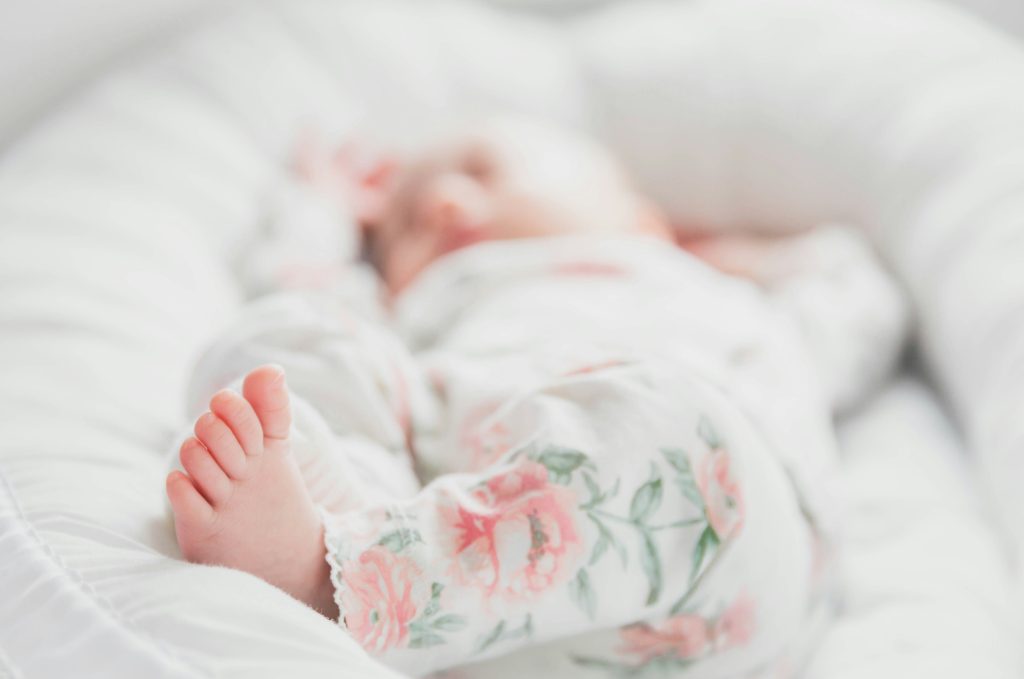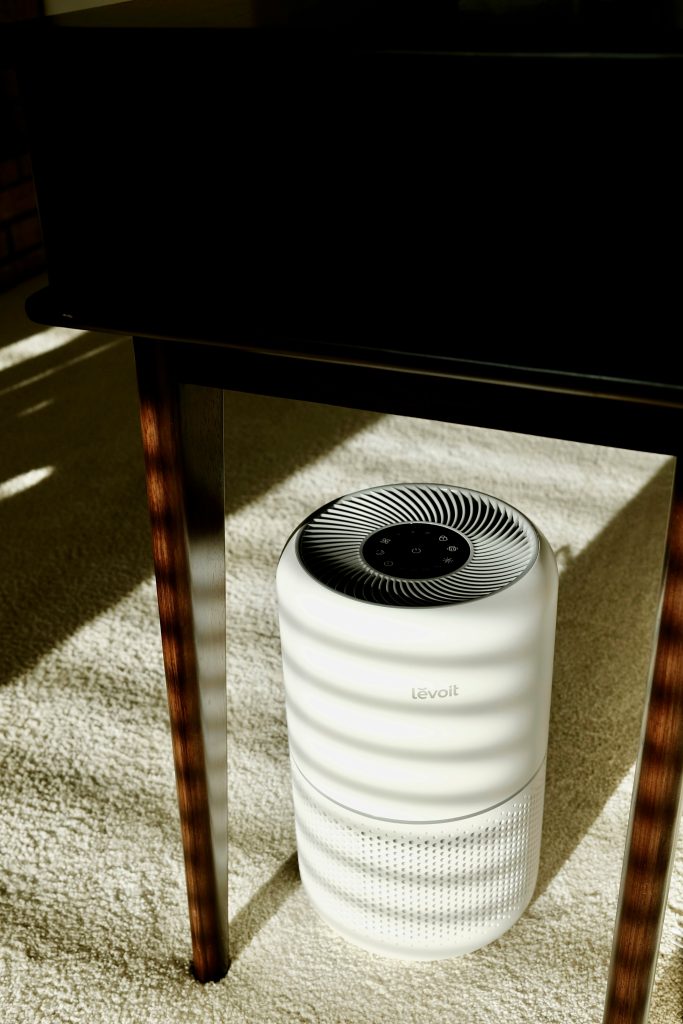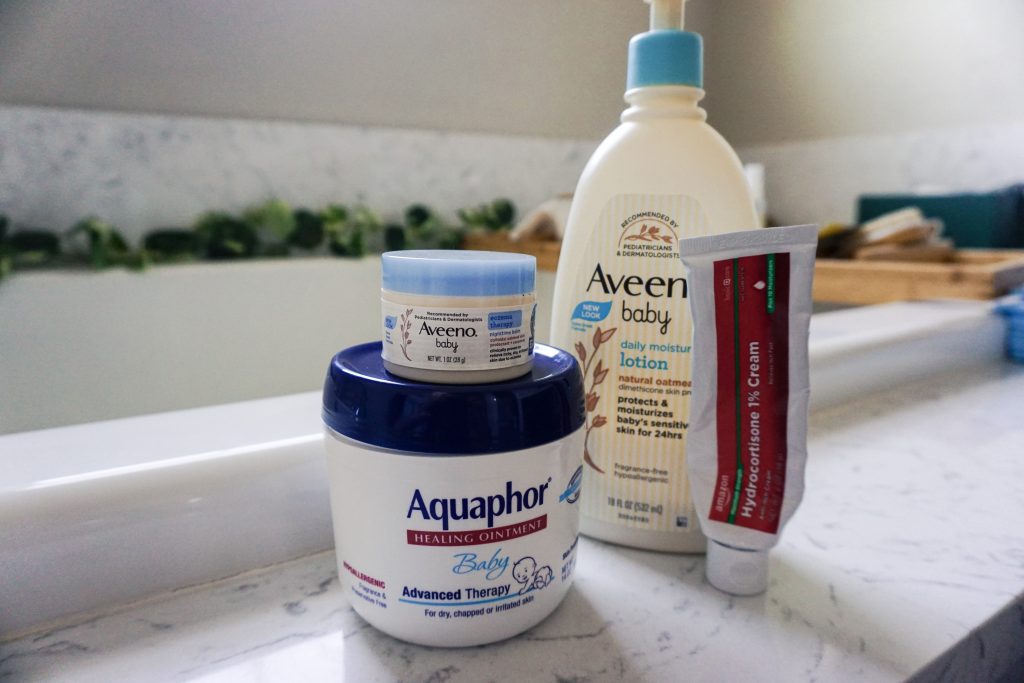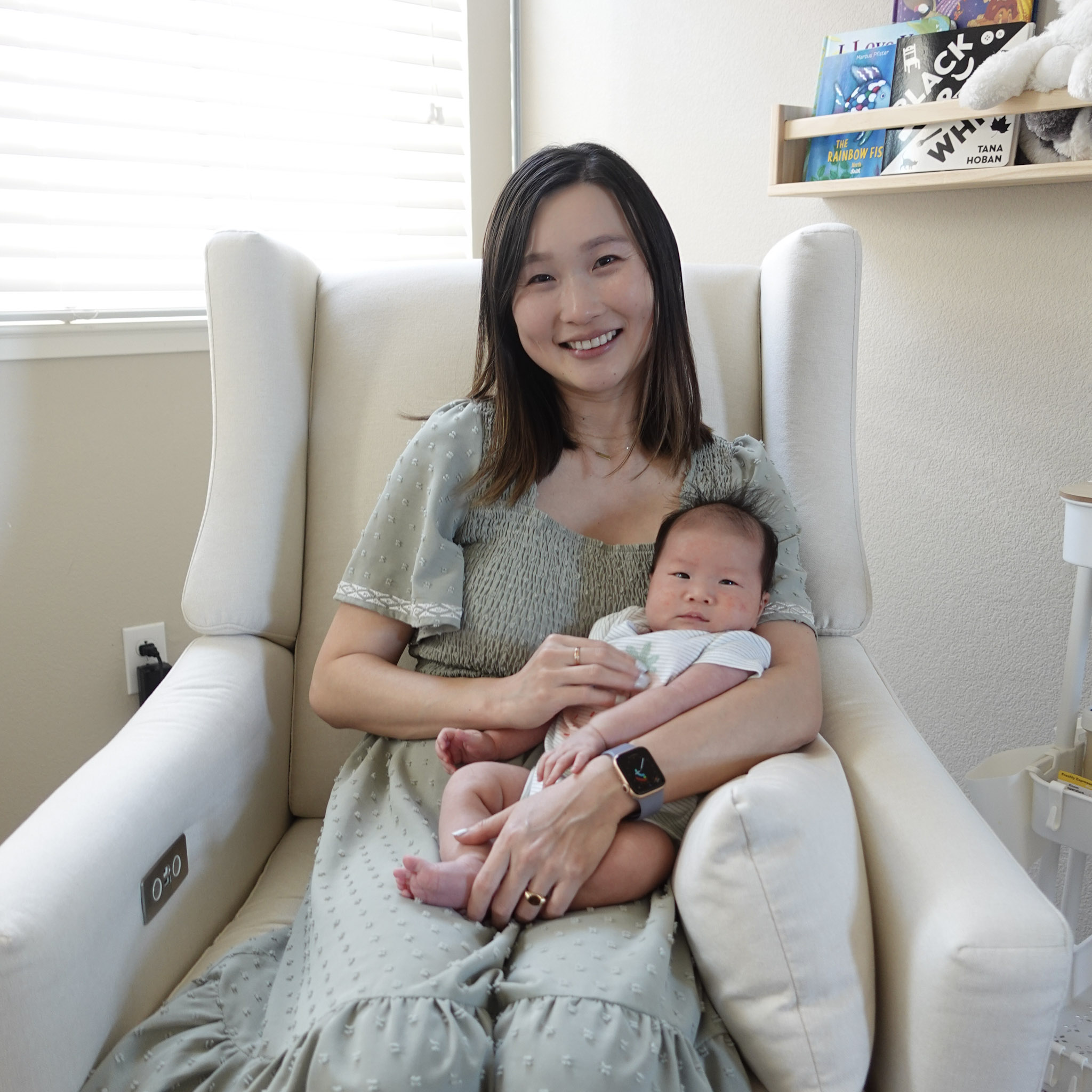
At our three-month baby checkup, my daughter was diagnosed with moderate eczema. It wasn’t so bad that she had open wounds or uncontrolled scratching. Even so, it still pained us to see inflamed red patches all over her back and belly.
She’s now one year old and her skin has improved so much since we started her daily eczema care routine. There are still the occasional eczema flare-ups but much less often and less severe. We were fortunate to have a wonderful allergist who helped us develop this highly effective routine. I wanted to share it with others out there who are going through a similar struggle.
Note: If your baby has dry red patches on the body, discuss it with your pediatrician or allergist. They can help diagnose and recommend a treatment plan. What I’m sharing here is based on our experience and research. It’s not medical advice, but I hope it helps you and your baby be a little more comfortable!
What Causes Baby Eczema
Baby eczema is partly driven by genetics and Asian babies are more likely to have it. It’s also fairly common in babies in general and unfortunately, there is no cure for eczema.
Babies with eczema have weaker skin barriers. Normally, our skin keeps moisture in and protects us from outside irritants. But in babies with eczema, their skin doesn’t hold moisture as well, which leads to dryness, cracking, and irritation.
Babies who have it are also more at risk for food and environmental allergies. That’s because the allergen particles will go into their systems through their skin, which is much more porous with eczema. The body then thinks the particles in their skin are invaders and attacks them, causing allergies to those particles.
It also works the other way around – allergies can trigger more eczema. Things like specific foods, heat, cold, sweat, or even dust can cause eczema to flare up. Fragrances in soaps, laundry detergents, or lotions can also irritate the skin. With so many different factors involved, it was really hard for us initially to manage her eczema and pinpoint what caused flare-ups. With some persistence and careful tracking though, we were able to improve her skin condition significantly!
Baby Eczema Care Must Haves

Air Purifier
The first thing our allergist recommended was to get air purifiers. More specifically, to have an air purifier to every room that baby spends a lot of time in. For us, this was our master bedroom, the nursery, and the living room where her play area is. We got the air purifiers right after after our allergy visit and it has helped a lot. They’re the Levoit brand and are running on the low setting 24/7.
Hypoallergenic Bedding
We use hypoallergenic crib sheets for Chloe and change them every 2 to 3 days. This keeps dander and other environmental allergens away from her. These allergens are often a sneaky trigger of eczema.
Frequent Vacuuming
We vacuum twice a week in areas where baby often hangs out. This also reduces the amount of dander and environmental allergens in the house, especially since we have a dog.

Eczema Creams and Ointments
Our favorites are Aveeno baby lotion for basic moisture and Aquaphor Healing Ointment, which we’ve been using since the newborn days. The Aquaphor has 41% petroleum jelly so it locks in moisture really well and create a strong skin barrier.
Our allergist also highly recommended Equate, which is 100% petroleum jelly. The pure jelly acts as an even stronger skin barrier and the Equate brand is especially soft and easy to spread.
Hydrocortisone is also another commonly recommended ointment to manage eczema. It soothes the flaring and reduces itching. Because it’s medicated, we only use this when she is having noticeable red patches on her face or body.
Our Daily Baby Eczema Care Routine
This is our routine every morning and evening:
- Put on 1% hydrocortisone on red patches if she’s having eczema flare-ups.
- Apply Aveeno baby lotion all over the body, including the face. Moisturizing is one of the most important steps in managing eczema. There is a lavender scented version of this lotion, but unscented is the best option for babies with eczema.
- Apply a thick layer of Aquaphor Healing Ointment all over the body except the face. This ointment is thick and sticky which makes it a bit tough to apply, but it goes on pretty smoothly.
- Apply Aveeno eczema cream on her face. Her face tends to get the most eczema especially when she’s eating. We use this cream designed specifically for eczema to reduce the itchiness and inflammation.
In the evenings, we also shower her every single day. Our longest streak of showering her daily was 82 days! We don’t soap her every day because that will dry out the skin. We do let her soak in the warm water for about 10 minutes. The water should be lukewarm, not hot. Right after her bath, we do the whole routine mentioned above. Doing it right away helps to lock in the moisture.
The routine doesn’t stop at skincare. Every night, my husband also logs her general activities and what she ate throughout the day. We learned that her eczema flare-ups are often caused by a certain food. For example, whenever we fed her over a certain amount of tofu, she would get eczema on her face for a day. They could also be triggered by an activity, like going to the park where there’s lots of pollen.
By keeping a careful daily log, we learned what to avoid over time. For example, one surprising pattern we noticed was that the eczema on her face would appear every time she ate more than one small bowl of spinach. We did some research and found this actually made sense, since spinach is a high-histamine food.
From our experience, the most important thing with eczema management is consistency. Diligently apply the ointments and moisturizers recommended by your doctor at least twice a day, bathe little one as often as possible, and keep the home clear of allergens as much as possible.
It’s hard to see improvement in the skin condition day by day. But stay consistent and over the months, you’ll likely see the eczema settling down. Baby’s immune system is also working hard and maturing over time, which will improve their chances of growing out of the eczema (and potentially food allergies if they have any) over time.
We also did a ton of research on baby eczema causes and ways to treat it. Here are some of the best articles we found:
- Baby Eczema overview
- How to treat baby eczema
- Triggers for eczema
- How food allergies and diet impact eczema
***
Some links in this post are affiliate links. I may earn a small commission if you make a purchase through them, at no extra cost to you. Thank you for your support!

